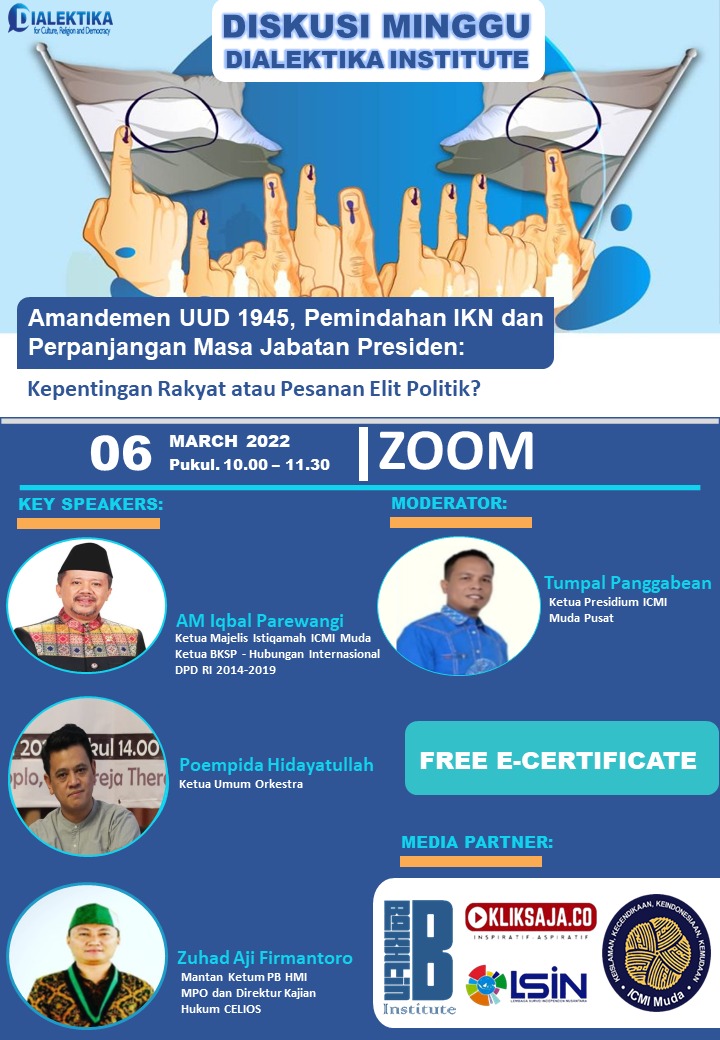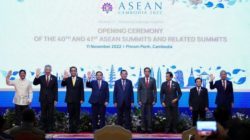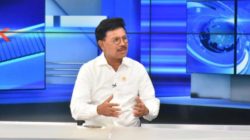The public has recently expressed concern over the idea of postponing the 2024 election, which was proposed by various party elites. Many political analysts see the postponement problem as part of a larger push to attain the three-term presidential agenda.
Linked to this issue are some political elites’ efforts to raise the issue of an amendment to the 1945 Constitution as well as moves to relocate the nation’s capital amid popular concern about economic developments caused by the pandemic.
The Dialektika Institute, in collaboration with ICMI Muda, Kliksaja.co, Bakhtin Institute, and LSIN, hosted an online discussion via Zoom meeting today (06/03/2022) on the topic “Amendment to the 1945 Constitution, Transfer of the nation’s capital, and Extension of the Presidential Term: Is it for the People or Political Elite Interests?”
AM Iqbal Parewangi (Chairman of BKSP – International Relations of BPO RI 2014–2019), Poempida Hidayatullah (Chairman of Orkestra), and Zuhad Aji Firmantoro (Former Chair of PB HMI and Director of CELIOS Legal Studies) participated in this debate as speakers . Tumpal Panggabean (Chairman of the Presidium of the Young Central ICMI) moderated this discussion .
Zuhad Aji Firmantoro began the discussion by stating that present political elite movements have a tendency to desire to keep and consolidate power. The first problem raised was the postponing of the 2024 election by a small group of political elites.
“The consolidation of power by some elites should be prohibited because it could lead to the hijacking of democracy. Political elites have experimented with the KPK Law and the Omnibus Law, and these experiments have been successful; therefore, at this time, the issue of delaying or even extending the president’s term of office may be successful if we do not take concrete actions to combat it,” Zuhad AJi, former Chairman of PB HMI MPO and Director of CELIOS, elaborated.
Meanwhile, Poempida Hidayatulloh, Chair of the People’s Welfare Organization (Orkestra), mentioned Indonesia’s lack of a democratic orientation.
The democratic process in Indonesia, especially regarding the extension of the president’s term of office, is still not clear where it will be directed. It is said that it directed to the United States, but in current practice, Indonesia seems to want to follow Xi Jinping in China or Putin in Russia. We condemn the Russian invasion of Ukraine but instead we adopt the way of leadership of this country. It’s ironical,” explained Poempida Hidayatulloh in his presentation.
Poempida, a former member of the 2014–2019 DPR RI, emphasized that Indonesia’s political climate is far from ideal.
According to him, there are at least three reasons why Indonesian politics is far from ideal. First, there are too many politicians in this country but very few of them are statesmen; secondly, power in Indonesia is not used for the welfare of the people, but rather to be held tightly for the sake of enriching themselves and their groups and; third, the democratic process in Indonesia tends not towards democratization but instead gives birth to absolute power.
Therefore, Poempida explicitly says that democracy in Indonesia has given birth to something non-democratic, namely authoritarian and tyrannical.
Meanwhile, AM Iqbal Parewangi, Chair of the Young ICMI Istiqamah Council, touched on the many dramas that were shown by the political elite in this country.
According to him, the country is rife with drama, such as the PCR scandal involving state officials, the controversy over the 1945 Constitution Amendment, election postponement, IKN relocation, and rising domestic oil prices.
All of this, he claims, is another sort of constitutional robbery and constitutional colonialism.
Furthermore, Iqbal expanded on the concepts of constitutional theft and constitutional colonialism, as well as their application to political occurrences in Indonesia.
The former member of the 2014-2019 DPD RI dissected the historical situation by referring to the 1945 Revolution, which was the point of consolidation of imperial power, the 1965 Revolution, which was the point of consolidation of communism, and the 2014 Mental Revolution, which was the point of consolidation of the oligarchs.
Iqbal then explained the role of young intellectuals in addressing present national challenges, departing from this occurrence.
Iqbal explained that “young intellectuals must appear to take on a historical role in order to fight against constitutional robbery and constitutional colonization.”
For full video, watch the following:







